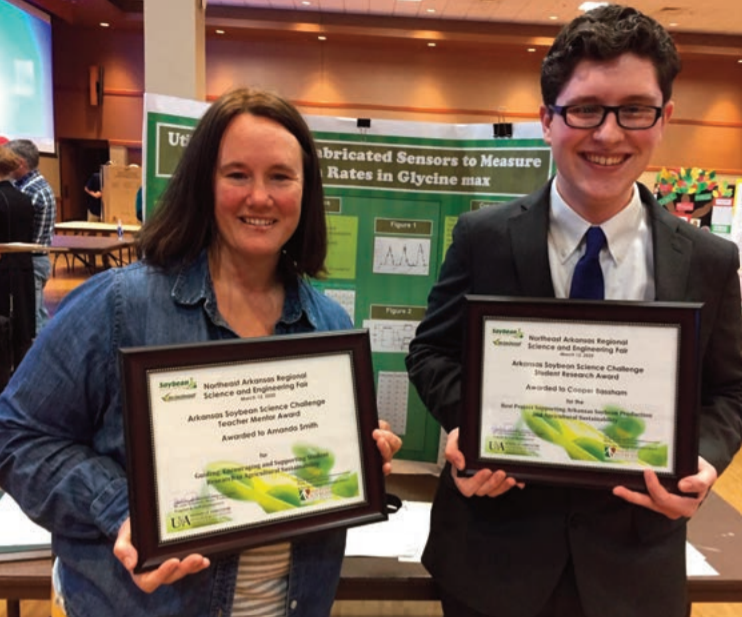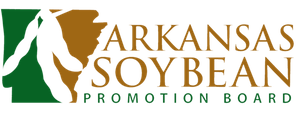Cooper Bassham – Northeast Arkansas Regional Science Fair Winner Arkansas State University, Jonesboro, AR
Cooper Bassham, Salem High School, Salem, AR
Mentor: Amanda Smith
Category: Materials Science
Project Title: Utilizing Desk Top Fabricated Sensors to Measure Transpiration Rates in Glycine Max
Abstract:
Purpose: the focus of this experiment was to find a more cost effective and accurate method for analyzing transpiration rates in soybeans (Glycine max).

By using three-dimensional printing technology and low-cost electrical components, the data collection process will become much cheaper and less labor intensive.
Method: An Arduino board was attached to three probes, each consisting of thermocouple wire. These probes were inserted into soybean stems and a system was designed to deliver a heat pulse at regular intervals, then recorded the time it took for the pulse to reach a heat detection probe. This time frame over a known distance is how the transpiration measurements are taken.
Data: The field data recorded between April 8, 2019 and May 30, 2019 utilizing the eddy covariance method indicated that the average hourly transpiration rate was 0.14 mm/hour and the average daily transpiration rate was 3.27 mm/day. Hummingbird Arduino records temperature.
Conclusion: The results of this study are intended to increase the sample size of individual measurements, creating an overall more accurate view of a region’s irrigation requirements rather than small, representative samples of the entire area’s requirements and therefore increase aquifer conservation and economic returns. The results of this study on the plant scale will inform field scale evapo-transpiration rates in the region. Testing has revealed that the sensors do indeed record transpiration, supporting my hypothesis that a partially 3D printed sensor is a contender for a less expensive yet practical transpiration measurement method.
